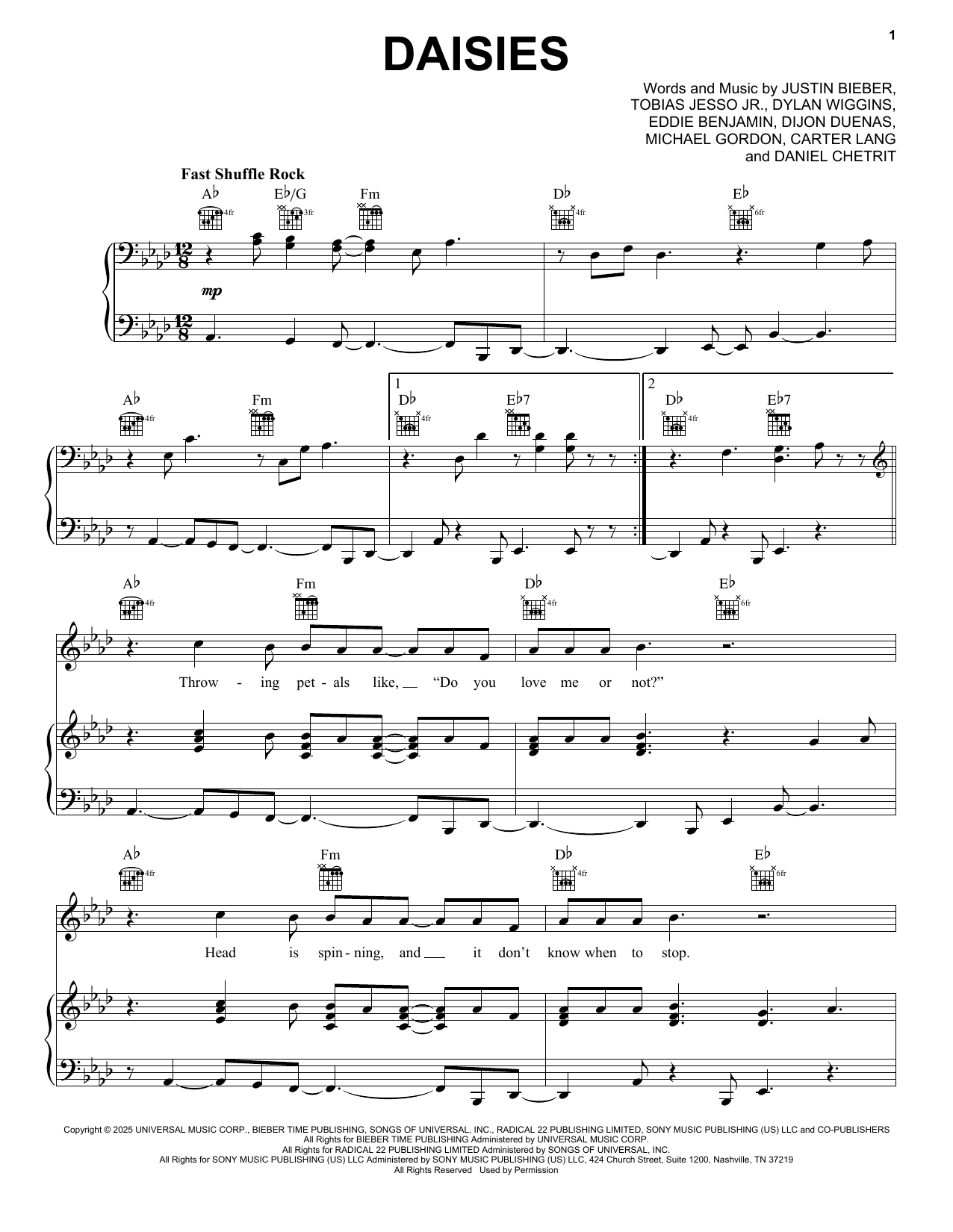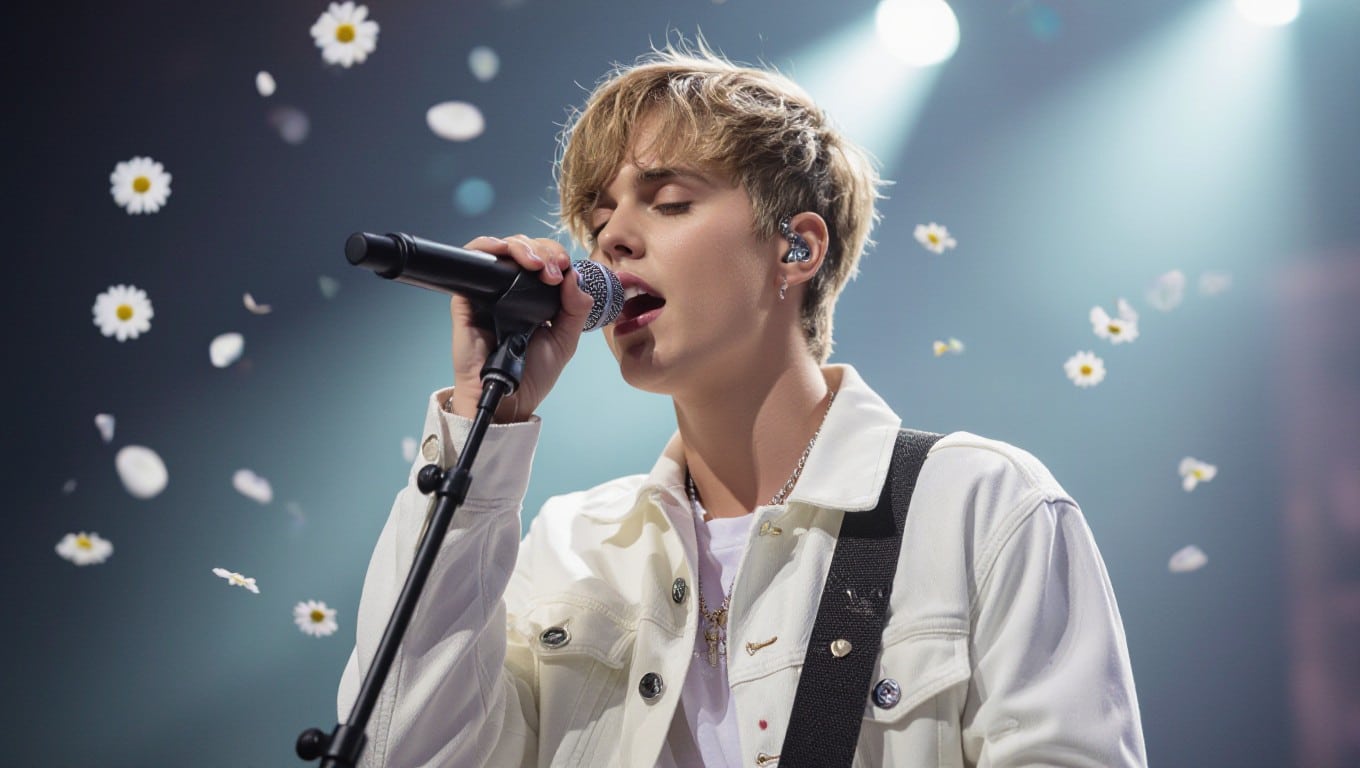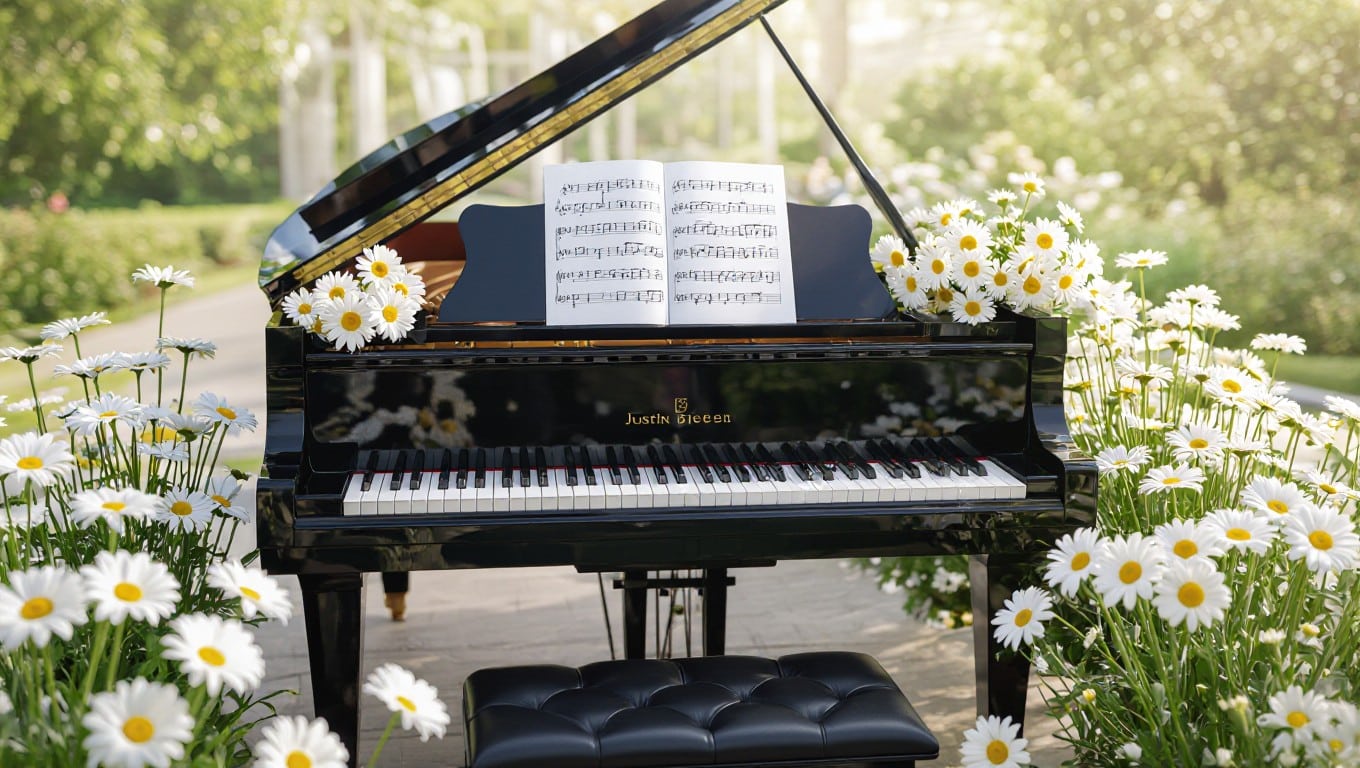Many fans are drawn to the intimate backstory of ‘Daisies’ and in this post you’ll uncover its writing process, production notes, and how to play it on piano; you’ll find official and reliable piano sheet music, practical arrangement tips, and a note on licensing and copyright risks when sourcing scores. As you read, expect clear analysis, chord breakdowns, and performance advice to help bring the song to life on your piano.
The Creative Spark Behind “Daisies”
The Moment of Inspiration
You can hear how the melody arrived almost fully formed: a fragile piano phrase that landed in the first 20 minutes of a late-night session, then stuck. Producers noted the hook emerged over a simple I–V–vi–IV motion, and the lyric image of daisies as quiet resilience came from a line jotted on a napkin. That initial piano motif and the 20-minute demo shaped the song’s emotional core.
Download Licensed Digital Sheet Music

Sessions brought together three writers and a producer across two main studio days, with Justin guiding vocal phrasing and arrangement choices. You’ll find the team kept the arrangement sparse at first—vocals, piano, light percussion—then refined it through four revisions. The most surprising note: the piano hook was nearly cut during mixdown but was restored because it gave the track its emotional anchor.

Unpacking the Lyrics
Released on May 29, 2020, the song uses spare, direct lines that let you track a relationship through doubt, reassurance, and steady devotion. Verses lean into vulnerability while the hook repeatedly returns you to a promise of constancy, making loyalty and resilience feel explicit rather than decorative. At points the lyrics verge on idealization, which can be dangerous if you read them as a prescription instead of a personal vow.
Central Themes of Love and Growth
Lyrics present love as a process where you grow alongside someone rather than rescue them; you hear admissions of past mistakes followed by commitments to change. Musical dynamics mirror that arc—quieter lines for introspection, fuller production for assurance—so the song models growth as iterative, measured steps rather than instant transformation.
The Symbolism of Daisies
In literary and floral tradition, daisies represent innocence, loyal love, and new beginnings, and the song borrows that shorthand so you immediately associate the relationship with purity and endurance. Victorian floriography explicitly linked daisies to simplicity and faithful affection, which helps the chorus read as both intimate promise and cultural symbol.
Botanically, daisies belong to the Asteraceae family—one of the largest plant families with roughly 23,000 species—so the image carries both commonness and durability; the common daisy (Bellis perennis) survives mowing and poor soil, giving you a concrete example of resilience that parallels the song’s message about staying power in a relationship.
Soundscapes and Musical Craft
You’ll notice the arrangement prioritizes space and clarity, letting a simple piano motif, ambient pads, and tight percussion breathe around the vocal. Dynamic contrasts—soft verses and a fuller chorus—drive emotional impact, while selective reverb and delay place the voice slightly forward in the mix so your ear follows lyrical phrasing. Production choices keep the focus on melody rather than dense instrumentation.
Instrumentation Choices Shaping the Sound
Sparse acoustic piano establishes the harmonic spine, while layered synth pads add warmth and stereo width without cluttering frequencies below 200 Hz. Light programmed drums and a rounded sub-bass support rhythm, and occasional electric guitar or plucked textures punctuate transitions. Those decisions create a modern pop bed that lets you hear every melodic detail clearly.
Justin Bieber’s Vocal Performance Style
He leans on a breathy, intimate timbre in verses, shifting to controlled belts and falsetto flourishes for emotional peaks; this contrast gives the melody its forward motion. Vocal doubles and close-miked delivery make you feel present in the room, and tasteful runs or slides add personality without overwhelming the core line.

The Song’s Reception and Cultural Impact
Critical Reviews and Industry Insight
You probably noticed critics zeroing in on the song’s sparse arrangement and vocal intimacy, with many outlets praising the way the piano drives the melody. Industry commentary credited the track with helping Bieber pivot toward a softer pop-R&B aesthetic, and editorial playlist placements boosted visibility across streaming platforms. The stripped-back production and vocal-forward mix was frequently highlighted as a deliberate move to foreground songwriting rather than studio gloss.
Resonance with Fans and Broader Audiences
Fans turned the chorus into the basis for dozens of piano covers and reaction videos within weeks, and you can find multiple amateur arrangements circulating on YouTube and TikTok that highlight the song’s simple chord progression. Concert-goers later cited the track as a moment of intimacy during live sets, with acoustic renditions often receiving standing ovations.
You’ll also see the song crossing communities: vocal coaches uploaded tutorial breakdowns, music teachers adapted the melody for student recitals, and online sheet-music retailers listed several beginner-to-intermediate piano arrangements. That grassroots adoption helped the song reach listeners who might not follow Bieber’s mainstream singles, expanding its cultural footprint beyond typical pop charts.
Legacy within Justin Bieber’s Discography
You’ll find “Daisies” sits as one of Bieber’s more intimate entries, often cited by fans for its stripped-back piano arrangement and lyrical maturity. Unlike his dance-pop singles, the track reinforces his ability to headline with minimal production, showing up frequently in acoustic livestreams and fan-made piano covers that keep the song alive beyond the initial release window.
“Daisies” in Context of His Career
You can trace a line from early acoustic moments like “Love Yourself” to “Daisies,” where the focus shifts from beat-driven hooks to vocal nuance and simple harmonic motion. The song contrasts with arena-ready hits such as “Sorry” and “Peaches,” offering a quieter, more personal statement that many listeners interpret as part of his artistic maturation.
Influence on Future Musical Directions
You’ll notice producers and live arrangers leaned into piano-led textures after “Daisies,” using tasteful keys to frame vocal storytelling rather than dominate it. That shift toward organic instrumentation appears in later acoustic sets and reworked radio edits, signaling a broader appetite for intimacy in his releases.

Mastering “Daisies” on Piano
You should break the piece into small units: learn the opening 8-bar motif, then the verse and chorus separately, practicing hands apart for 10–15 minutes each before combining them. Focus on the song’s steady 4/4 groove, the characteristic left-hand pattern and the subtle vocal-like right-hand phrasing; use a metronome at 60–72 BPM to build control. Perceiving how dynamics and small rubato shape the melody will make your rendition convincing.
- Daisies
- Justin Bieber
- piano sheet music
- chord progression
- arrangement
Accessing Sheet Music and Resources
You can find official Piano/Vocal/Guitar (PVG) scores from publishers like Hal Leonard or FreshSheetMusic (digital PDFs typically range $3–$15). Explore community arrangements on MuseScore for simplified or extended versions, and check licensing if you plan to perform publicly. Use transposition tools or a capo for matching Justin Bieber’s vocal range if accompanying a singer; many sellers include audio previews so you can confirm the arrangement before buying.
Practical Tips for Aspiring Musicians
Divide practice into focused segments: 15 minutes on technical work (scales and arpeggios), 20 minutes on troublesome measures, and a 10-minute run-through that emphasizes dynamics and phrasing; record one run each session to track progress. Pay special attention to the left-hand groove—practice it at 60% tempo until solid—and avoid over-pedaling to keep clarity. Perceiving how small tempo shifts affect emotion will improve your interpretation.
- metronome practice
- hands-separately
- recording yourself
- left-hand groove
- avoid over-pedaling
Work measure-by-measure: isolate 4-bar phrases, loop them for 5–8 repetitions, then add one bar at a time; use a backing track or click to simulate live timing and practice dynamics at three levels (soft, medium, strong). Schedule one weekly session to sight-read related pop ballads to expand your feel, and consult an instructor for targeted feedback on touch and voicing. Perceiving subtle voicing choices will elevate the song from cover to personal statement.
To wrap up
Taking this into account, you can appreciate how “The Story Behind ‘Daisies’ by Justin Bieber: Piano Sheet Music and More” reveals the song’s personal narrative, production decisions, and notation availability; your engagement with official sheet music, arrangements, and interviews will sharpen your interpretation and performance, giving you the context and tools to play and present the piece with informed artistic intent.
Frequently Asked Questions
What inspired Justin Bieber to write “Daisies”?
Justin Bieber drew inspiration from personal experiences and symbolic meanings of daisies, representing purity, hope, and resilience.
Who wrote “Daisies” with Justin Bieber?
The song was co-written with notable songwriters and producers known for their work in contemporary pop and R&B.
What is the meaning of “Daisies” by Justin Bieber?
The track reflects themes of personal growth, enduring love, and hope for the future, using daisies as a central metaphor.
When was “Daisies” released?
“Daisies” was officially released as part of Bieber’s latest album, debuting in 2025 to widespread acclaim.
Is there piano sheet music available for “Daisies”?
Yes, official piano sheet music is available for download, featuring both easy and professional arrangements.
Customer Reviews
Real feedback for “Daisies” by Justin Bieber – Piano Sheet Music (PDF)
★★★★★
Clean engraving and musical phrasing. The suggested fingerings saved rehearsal time with my students. The melody sits nicely under the hands.
Teacher approved
★★★★★
Very faithful to the original track. Dynamics and pedal markings help capture the intimate vibe. Used it for a small recital—lovely response from the audience.
Recital ready
★★★★☆
The easy arrangement is approachable and musical. I wish there were a couple more practice tips, but overall great value and quick to learn.
★★★★★
High‑resolution PDF with excellent spacing. No page turns mid‑phrase, and chord symbols are a nice touch for light arranging.
Great engraving
★★★★★
The voicings and dynamics really bring out the song’s tenderness. Loved the performance notes—helped me shape the phrasing.
★★★★★
Checkout was smooth and the file opened perfectly on my tablet. Practiced the same evening—exactly what I needed.
Tablet friendly
4.8/5
(6 reviews)
